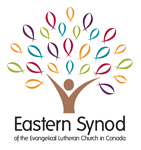It’s been a year.
It has been a year, and what has changed?
A year since a man begged for his life from an officer of the law. A year since a woman was shot in her bed. A year since national sports leagues boycotted games. A year since we saw #saytheirnames trending on social media.
It has been a year since George Floyd, Breonna Taylor, and Regis Korchinski-Paquet.
What has changed?
There’s an argument to be made about the awareness we, as a society, have brought to issues of racism within our community. Would the fishery fires in Nova Scotia, specifically targeting Indigenous fishers, have gotten as much coverage if it weren’t for worldwide marches and protests against racially-motivated violence? Would we have had important conversations about different ways the Capitol riot would have been covered if it were People of Colour versus White people? Would we be as outraged, again, about the death of Duante Wright because an officer “couldn’t distinguish between” her taser and her gun?
It’s encouraging to see the beginnings of discussions happening in our communities regarding racism and discrimination based on ethnicity and/or culture. It is encouraging to have people actively engaging with and responding to the Racial Justice Advisory Committee’s (Eastern Synod) Black History Month Challenge. It’s encouraging to be in meetings that specifically call out needing budgetary support to address these issues.
But it’s not enough.
It can’t be enough.
We cannot call it enough.
It’s not enough when the Ontario government doesn’t see anything wrong with the idea of granting extra powers to police to stop people on the road and fine them for leaving their house. It’s not enough when young men in Canadian provinces feel like they cannot wear a hoodie because they’re afraid of what it might incite. It’s not enough when we blame an entire race for a pandemic when we are all responsible for the ongoing health, care and herd immunity to protect one another. We do not live in a siloed community. We live in a community: “an interacting population of various kinds of individuals (such as species) in a common location”.(Merriam-Webster)
What have we done in a year?
We have taken steps. Encouraging steps. Worldwide protest marches, public outcries and engagement with political leaders and other decision makers have taken place. But we can do more. We can continue to challenge the status quo, we can continue to ask questions about representation and covert racism that exist by nature of the way our systems and policies are built. We can continue to ask for more from our Councils, our Synods and our ELCIC with respect to addressing and drawing attention not only to overtly racist acts, but also in covertly racist actions like terminology, word choice, or simply passing over a Person of Colour in selection processes. We can continue to learn, advocate, grow and ask questions in ways that support relationship building and personal growth. This is a lifelong endeavour; accept that mistakes will be made and move on, then re-charge and re-engage. It is not a path we walk alone.
We can make dismantling racism and colonial attitudes a 365-day-a-year job, rather than one pulled out in recognition of calendar milestones (Black History Month, Indigenous Peoples’ Day, International Day for the Elimination of Racial Discrimination, etc).
As of this writing, Derek Chauvin’s trial jury has just returned guilty verdicts on all three counts in the murder of George Floyd. We join in the collective sigh of relief, hoping this becomes a beacon of positive change. We commit ourselves to continue the work to dismantle oppression – to have the difficult and courageous conversations, to name racism when we see it, to honour the lives of all of our Black Indigenous and People of Colour siblings.
Acts 10:34-36 says, “Then Peter began to speak: ‘I now realize how true it is that God does not show favouritism but accepts (people) from every nation who fear (God) and do what is right. You know the message God sent to the people of Israel, telling the good news of peace through Jesus Christ, who is Lord of all.’ ”
If you are looking for worship materials and options including sermon inspiration and prayers, please CLICK HERE for ways in which we can integrate this work, and these reflections into our worship.
MAY IT BE SO!
Eastern Synod Racial Justice Advisory Committee
